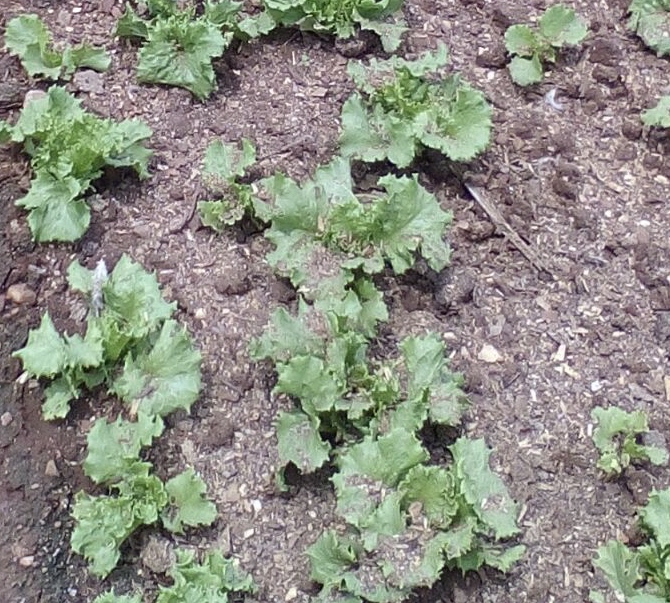-
Chen, Jinru
Pre- and Post-Harvest Practices of Urban Leafy Green Vegetable Farmers in Accra, Ghana and Their Association with Microbial Quality of Vegetables Produced
Summary
Vegetable farming is the most practiced urban agriculture in Ghana. A previous study of our laboratory revealed poor microbial quality of, and presence of Salmonella on, leafy green vegetables grown or sold in Accra, Ghana. The aims of this study were to determine agricultural practices of urban vegetable farmers and the association between agricultural practices and microbial safety of vegetables produced. A survey was conducted among 102 farmers from 12 farming areas who produced exotic and indigenous leafy greens in Accra, Ghana to identify their farming practices. It was observed that water from waste drains pumped into shallow wells was used for irrigation by 70% of the farmers. Incompletely composted manure was commonly used (99%) in farming. Vegetables were usually harvested using bare hands (96%) and knives (73%) and transported mainly in sacks (94%) to market centers under non-refrigerated conditions. Over 60% of the farmers disagreed that the use of polluted irrigation water can contaminate vegetables or make consumers sick. According to the seemingly unrelated regression model, farmers with no formal education and less food safety knowledge and had been planting on their current farmlands for several years were likely to produced vegetables with higher fecal coliform and Enterococcus counts compared to other farmers. Vegetables cultivated by farmers who disagreed that the use of contaminated water can make consumers sick were associated with the production of vegetables with high fecal coliform and Enterococcus counts. Education and improved agricultural and post-harvest handling practices should be encouraged among vegetable producers in the area to improve food safety.
Situation
Low microbial quality of leafy green vegetables from urban and peri-urban farms in Ghana has been reported by some early studies. Our recent study (Quansah et al, 2018) revealed poor microbial quality of, and presence of Salmonella on, leafy green vegetables grown or sold in Accra, Ghana.
Response
The aims of this study were to determine agricultural practices of urban vegetable farmers and the association between agricultural practices and microbial quality of leafy green vegetables produced in the area.
Impact
The study observed that water from waste drains pumped into shallow wells was used for irrigation by 70% of the farmers. Incompletely composted manure was commonly used (99%) in farming. Vegetables were usually harvested using bare hands (96%) and knives (73%) and transported mainly in sacks (94%) to market centers under non-refrigerated conditions. Over 60% of the farmers disagreed that the use of polluted irrigation water can contaminate vegetables or make consumers sick. According to the seemingly unrelated regression model, farmers with no formal education and less food safety knowledge and had been planting on their current farmlands for several years were likely to produced vegetables with higher fecal coliform and Enterococcus counts compared to other farmers. Vegetables cultivated by farmers who disagreed that the use of contaminated water can make consumers sick were associated with the production of vegetables with high fecal coliform and Enterococcus counts. Education and improved agricultural and post-harvest handling practices should be encouraged among vegetable producers in the area to improve food safety.
State Issue
Food Safety & Quality
Details
- Year: 2020
- Geographic Scope: International
- County: Spalding
- Location: College Station, Athens
-
Program Areas:
- Agriculture & Natural Resources
Author
Collaborator(s)
CAES Collaborator(s)
- Escalante, Cesar L.
Non-CAES Collaborator(s)
- Angela P-H. Kunadu
- Firibu K. Saalia
- Joycelyn K. Quansah
Research Impact

